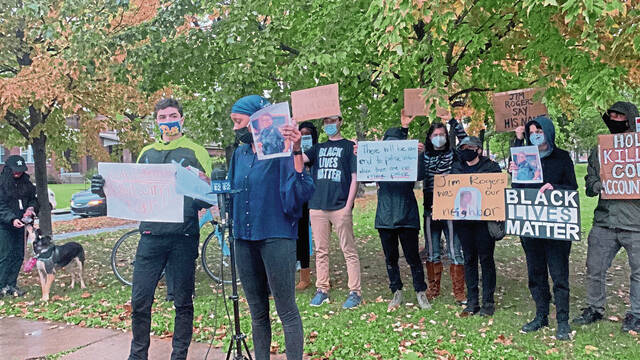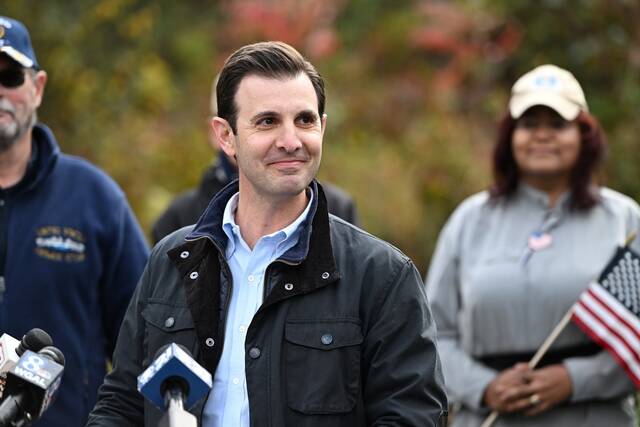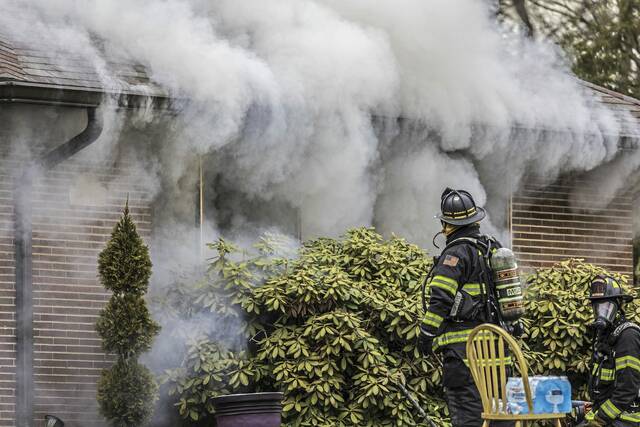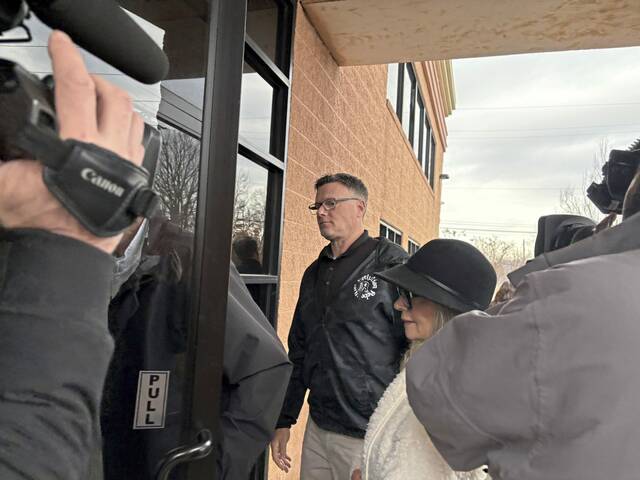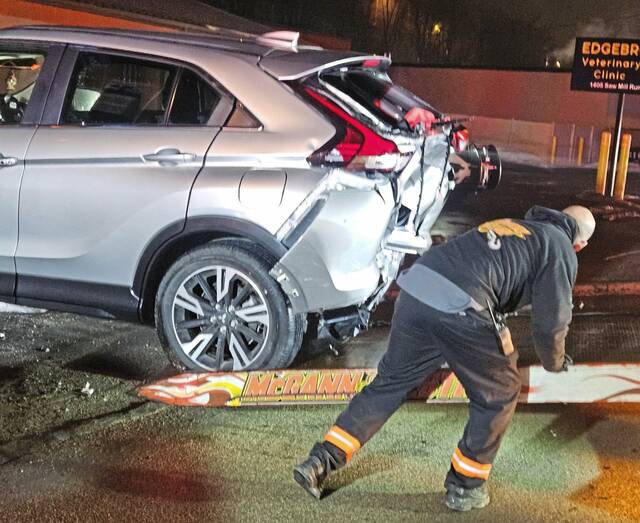From the initial stop to the decision to frisk.
From the way the frisk was executed to the decision to pull out a taser.
From how the taser was deployed to how all of the officers at the scene responded, the Pittsburgh Bureau of Police failed in its handling of an October incident involving Jim Rogers, experts said Wednesday.
“The system failed at every turn,” said University of Pittsburgh law professor David A. Harris. “It starts bad, and it gets worse. At every turn where someone could have minimized the damage, something else goes wrong.”
Rogers, 54, died on Oct. 14, a day after Pittsburgh police Officer Keith Edmonds stopped him on Harriet Street in Bloomfield while responding to a call about a reported stolen bicycle.
On Tuesday, the Tribune-Review obtained a copy of a 15-page executive summary of a report by the Pittsburgh Police Critical Incident Review Board, which conducted an internal investigation into what happened to Rogers. The report is highly critical of the responding officers, finding policy violations for everything from failing to activate their body-worn cameras to using excessive force and ignoring Rogers’ pleas for medical attention.
The executive summary is part of a 367-page report turned over to police and the city administration last week.
Neither report has been released to the public.
Later Tuesday, Pittsburgh police issued a news release in which the department announced that eight officers and two supervisors would face disciplinary action stemming from that day. They did not outline what that discipline might look like and did not identify the officers involved.
The release also included an apology from police Chief Scott Schubert and outlined policy changes that will be implemented as a result of the review board’s findings.
Although outside experts praised the city for taking some action as a result of Rogers’ death, they agreed that it’s not enough.
“At least as important as individual accountability is figuring out how the system allowed these things to occur and where the weaknesses are,” Harris said. “Because if we don’t repair that, we will experience other catastrophic failure.”
“It seems like this was the perfect storm in every facet of what could go wrong,” said Witold Walczak, the legal director of the American Civil Liberties Union of Pennsylvania. “Errors, cover up, indifference to a suffering person, and we still can’t have transparency.”
Walczak said the entirety of the Critical Incident Review Board report should be released to the public.
“The way to combat suspicion is to shine a light on the behavior,” he said.
Policy change is something, Harris said, but he doubts the public will think that’s enough.
He suggested an all-stakeholder event review — or a sentinel event review — similar to what occurs when there are failures in aviation, medicine and the military.
“This approach is beginning to be used in other cities that have had catastrophic events like this,” Harris said.
Elizabeth Pittinger, the executive director of the Citizen Police Review Board, said she felt one of the most disturbing parts of what happened leading up to Rogers’ death was the indifference shown by all of the officers on the scene toward Rogers’ well-being after he made it clear he needed medical attention.
“It’s evidence that it’s a complete, systemic failure,” she said. “It says so much for their lack of respect for his humanity.”
Police officers, Pittinger said, are taught to see everyone as a potential threat and they become hardened.
Harris agreed, noting officers often deal with people when they are at their worst.
“But that’s why we put very clear obligations in police policy and procedures,” he said. “Whatever it takes so we err on the side of saving life and treating people’s basic needs instead of disregarding them.”
“I think once cops have been on the force for a while, they just become blue, and some of the ordinary norms don’t apply anymore,” Walczak said. “Some of that humanity seems to disappear.”
He cited George Floyd’s death in Minnesota last year, when several officers stood around doing nothing while Derek Chauvin kneeled on his neck, killing him.
“We are way past the point where calls for help like that can safely be ignored,” Harris said. “This just can’t be the way police interact with civilians because people will die. The consequences are as dire as it gets.”
Walczak questioned the officers’ decisions not to help Rogers.
“It can’t be fear, because (he’d) already been neutralized. He’s cuffed, there’s no weapons. Why wouldn’t you help the guy?”
Beyond the systemic failures, Harris said, individual actions taken by Edmonds that day in how he initially interacted with Rogers were wrong.
Edmonds may have had the legal right to temporarily detain Rogers to find out if he had been involved in some minor theft, Harris said. That might mean asking Rogers to sit down and asking him questions.
“Almost everything he does is outside the legal bounds, and the effect is escalating (a situation) where (Rogers) is no threat at all,” he said.
Harris said that Edmonds had no right to frisk Rogers, and when he did frisk him, his technique was improper. Then, instead of trying to handcuff Rogers, Edmonds tased him repeatedly.
“This is an incomprehensible use of the police officer’s authority,” Harris said. “The guy wasn’t resisting. None of this had to happen.”
The Black Political Empowerment Project praised the city’s initial response Tuesday.
“We rarely hear an apology from the Pittsburgh Bureau of Police or the city’s Department of Public Safety, or from few police departments in the nation when a Black man needlessly dies at the hands of police, but in this case an apology was offered to the family, friends and supporters of Mr. Rogers by the Chief of the Pittsburgh Bureau of Police, Scott Schubert,” the statement said.
“We salute that powerful statement from Chief Schubert and ask that that statement be reinforced, on an annual basis, to each and every Pittsburgh police officer,” the statement added. “We cannot bring back James Rogers, but his death apparently will not be in vain, and will lay the foundation for a more just, fair, informed, and level of sensitivity in the use of force in Pittsburgh for years to come.”
The statement said the city must determine “how it can appropriately compensate the family of James Rogers to further assure that such a tragedy will never be replicated going forward.”


